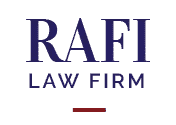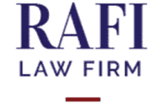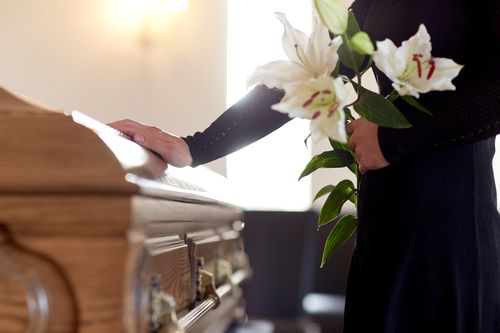It’s challenging to come to terms with the death of a loved one, especially if the incident is another person’s responsibility. Apart from pain and emotional distress, families may suffer financially because of the money spent on medical bills, among other expenses.
While no money is worth an individual’s life, compensation helps ease the financial burden and holds the individual accountable.
The qualified and experienced wrongful death lawyers of Rafi Law Firm are always ready to help. Whether your loved ones death occurred as a result of a car accident, workplace hazards, or truck accident, we can help you get the compensation you deserve.
Here’s a piece with additional information about wrongful death cases, including the definition, what qualifies as wrongful death, starting a claim, and more. Read on!
How is Wrongful Death Defined?
Wrongful death refers to a situation in which an individual’s death occurs because of another party’s intentional behavior or negligent actions. It’s important to note that an incident can only be classified as a wrongful death if the responsible party’s reckless, careless, or intentional conduct directly leads to the victim’s death.
Wrongful death can result from reckless behavior, such as medical malpractices and reckless driving leading to an accident.
Who is Qualified to File a Wrongful Death Claim?
Various individuals can file a wrongful death claim, depending on their relationship with the deceased as well as the circumstances of the situation. The following individuals are legally qualified to file a wrongful death claim.
The Immediate Family
Immediate family members, including the spouse, parents, and children, can file a wrongful death claim.
Financial Dependents
Individuals who rely on the deceased person financially have the legal standing to file a claim. Such people include grandparents, stepchildren, and other family members, provided they can demonstrate that the deceased was providing them with significant financial support.
Personal Representative
A personal representative, also known as an executor, is an individual who administers the deceased person’s estate. The executor is usually named in the will; in other cases, the court may appoint one. If compensation is recovered, it’s distributed among the heirs and beneficiaries of the deceased, as outlined in the will or based on succession laws.
Other individuals, like putative spouses and children, can also pursue a case against the individuals responsible for causing the wrongful death.
What Qualifies as a Wrongful Death?
Any reckless, negligent, or intentional conduct directly leading to a person’s death qualifies as wrongful death. Below are some common scenarios.
Car Accidents
Fatal accidents caused by reckless or negligent drivers can result in wrongful death claims. Good examples of such situations are if the driver is speeding or driving under the influence.
Boating Accidents
If recklessness and negligence lead to fatal waterway accidents, responsible individuals can be held accountable for wrongful deaths.
Workplace Injuries
Employer negligence and unsafe conditions can lead to accidents in the workplace. For example, a construction site accident can result in a claim for wrongful death.
Fatal Accidents Involving Semi Trucks
Semi-truck drivers engaged in distracted driving or driving under the influence can cause terrible accidents that lead to death. In such cases, the driver can be sued for their actions.
Defective Products
Using defective products, electronics, medical devices, drugs, and toys can cause death. Such can lead to a wrongful death claim, and individuals that can be held accountable include manufacturers and distributors.
Motorcycle and Moped Accidents
Reckless motorcycles and moped operators may be sued for wrongful death if they cause an individual’s death while on the road.
Medical Malpractice or Negligence
Healthcare providers may commit malpractices or errors leading to a patient’s death. A situation like this can qualify as wrongful death. An example is a misdiagnosis or a surgical error.
Many cases can qualify as wrongful death, so individuals should consult an experienced attorney for guidance, and in this case, we can help.
Can a Surviving Family Member File For Punitive Damages?
Surviving family members can seek punitive damages in a wrongful death case. These damages are not typically meant to compensate the affected individual(s), but they aim to punish the defendant for their dangerous actions and deter similar acts in the future.
Seeking punitive damages is quite complex and challenging, as they are awarded depending on the facts and circumstances of the case. An Athens wrongful death lawyer from our firm , however, can help victims understand their legal options and pursue punitive damages if needed.
How is Negligence Proven in a Wrongful Death Case?
The plaintiff must establish 4 elements to prove negligence in a wrongful death case. These include:
Duty of Care
The relevant party must prove that the defendant owed the victim a duty of care. It’s usually based on their relationship and other circumstances around the situation. For instance, drivers have a duty of care to pedestrians.
Breach of Duty of Care
It must be demonstrated that the defendant violated the duty of care owed to the victim. This means the plaintiff should show that the defendant’s behavior fell below the standard of care that a responsible individual would have exercised in a similar situation.
Causation
There should be a direct link between the death of the deceased and the defendant’s breach of duty. It implies giving sufficient evidence that the defendant’s actions or negligible behavior directly resulted in the victim’s death.
Damages
Individuals seeking compensation for wrongful death must prove that the deceased suffered damages due to the defendant breaching their duty of care. Damages include loss of life, plus economic and non-economic losses suffered by the spouse, children, and other people related to the deceased person.
All the above elements must be satisfied to build a strong case and guarantee compensation.
How Do You Start a Wrongful Death Claim?
Starting a wrongful death claim involves several vital steps while paying attention to detail. Here’s a guide on how to go about the process.
Building a Case
The first thing to do while building a case is to consult an experienced lawyer to help navigate the legal process. The attorney assesses the strength of the claim and helps build a strong case.
To build a case, these steps are followed.
- Determining Eligibility: An attorney will help spouses, children, immediate family members, and others related to the deceased decide whether they can file a wrongful death claim. Once eligibility is determined, the process of gathering facts begins.
- Gathering Evidence: There must be sufficient evidence of the cause of death for the case to succeed. Things like medical records, police reports, and photographs can be used to support the claim.
- Establishing Negligence: Next is to show that the victim’s death was caused by negligence, intentional behavior, or another person’s recklessness. It’s achieved by proving duty of care, breach of duty of care, causation, and damage.
It’s advisable to notify the responsible party before filing a wrongful death claim, and this step occurs while building a case. An attorney will provide information on how to go about it.
Negotiations
Parties involved can result in negotiations to reach a settlement without going to trial. It involves discussions with the help of an attorney or through mediation. The process begins with organizing all the relevant documentation to support the claim, for example, medical records, followed by the following steps.
- Preparing a demand letter: A wrongful death lawyer prepares a demand letter for the individual seeking compensation. The letter outlines the legal claims, the evidence, and the damages one seeks. The letter is then sent to the relevant party.
- Response: Upon receiving the demand letter, the responsible party reviews it and prepares a reply. The response may include acceptance, rejection of the demand, and in other cases, a counteroffer.
- Discussions: Negotiations involve discussions between the involved parties or their representatives. The discussions can be in emails, letters, face-to-face meetings, or phone calls, depending on what suits everyone.
- Mediation (If negotiations fail): The parties can resort to mediation if the negotiations become contentious or stall. A neutral third party, the mediator, facilitates the discussions to help reach a settlement.
- Evaluating Offers: An attorney helps evaluate settlement offers to determine if the offer adequately covers every loss. The offer can be accepted or rejected, and a counteroffer may follow.
- Finalizing the Settlement: Everything is written down when the parties agree on a settlement amount. The agreement includes the amount to be paid, the mode of payment, and other relevant details.
After the settlement is paid, everyone responsible signs a release clause that prevents them from seeking further legal action.
Preparing For Trial
Preparing for trial in a wrongful death claim requires proper organization, and here’s a step-by-step guide on how to do it the right way:
- Speak with an Attorney: An experienced lawyer is the primary resource during trial preparation. Individuals must closely work with their attorneys to help them understand the timeline of the trial and all the procedures involved.
- Organizing Evidence: Because all the relevant evidence is already gathered, an attorney will help organize it well to make it easily accessible when the trial begins.
- Witness Preparation: Witnesses who will testify during the case are given guidance about presenting their side of the story during the day of the trial. Practicing in advance ensures witnesses are comfortable and able to articulate the facts in court.
- Formulating a Trial Strategy: A clear trial strategy is vital to winning a case. It includes outlining the major arguments and identifying some weaknesses in advance. The order in which witnesses will testify is also agreed upon.
Trial preparation is usually a collaborative process between the individuals filing the case and their attorney, so these parties should maintain clear and constant communication at every stage.
Trial
A trial begins with opening statements from both sides’ attorneys, outlining their case’s main arguments.
The plaintiff is then allowed to present their evidence to support the claims. The evidence may be admitted or rejected depending on what’s legally acceptable.
After each party presents their case and delivers closing arguments, the judge examines the evidence and arguments, then reaches a verdict. The decision is announced in the courtroom for all parties to understand the judgment.
What Types of Evidence Can Be Useful in a Wrongful Death Suit?
Various kinds of evidence can be used to establish liability and demonstrate damage in a wrongful death suit. Such evidence includes:
Death Certificate
The death certificate provides information about the manner and cause of death. This makes it a critical document in a case of wrongful death.
Deceased Medical Records
Medical records of the deceased are also valuable evidence. The records can help establish the extent of injuries as well as the medical care the victim received. Medical records include hospital records and test results.
Police and Autopsy Reports
A police report document also helps support the case in a wrongful death claim. Details about the incident and witness statements are usually included in police reports.
Autopsy reports conducted by forensic pathologists and medical examiners are also crucial evidence. These reports are necessary whenever there’s a dispute about the cause of death.
Physical Evidence
Physical evidence includes every tangible item related to the case. Examples are vehicle parts and defective products. Experts may examine physical evidence to determine whether it’s relevant to the case.
Financial Documents
Financial documents assist in determining the extent of economic damage suffered by family members and others related to the deceased. The records include medical bills, tax returns, and bank statements.
These types of evidence are necessary when building a wrongful death case. They help prove the cause of death, the circumstances surrounding the incident, its impact on surviving family members, and the liability of the individuals responsible.
What is the Difference Between a Wrongful Death Claim and an Estate Claim?
The major difference between a wrongful death claim and an estate claim is the purpose of the claim and the party filing the claim. Filed by surviving family members, a wrongful death claim seeks compensation for the losses resulting from the deceased’s death. On the other hand, an estate claim is filed by the estate’s representative to pursue the right the victim had before their death.
Establishing the defendant’s liability is a major issue in a wrongful death claim, as it must be proven that the defendant’s actions lead to the death of the deceased, which is not the case in an estate claim. Liability could still be relevant in the latter, but the primary aim is to pursue legal claims or rights on behalf of the victim, as opposed to seeking compensation.
Contact our Athens Wrongful Death Lawyer Today!
While compensation isn’t enough to bring the deceased to life, it helps the affected individuals to recover financially. Even with clear evidence, the process can be complicated, requiring adequate preparation and excellent case presentation. Speak to us today, and we will help you with your wrongful death claim.





